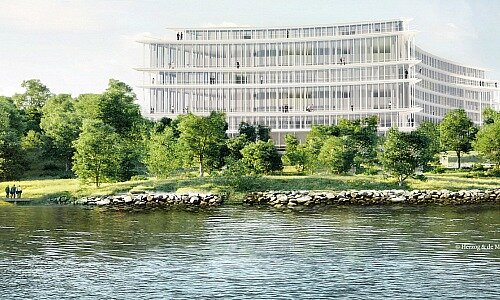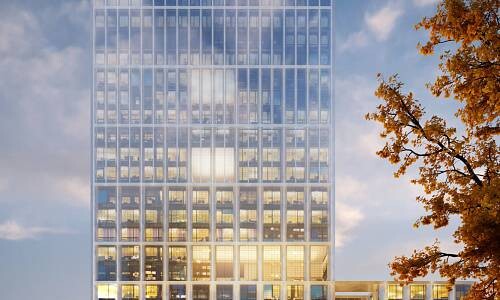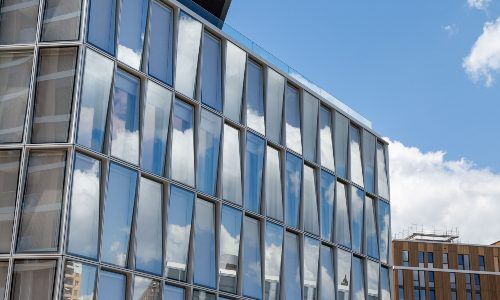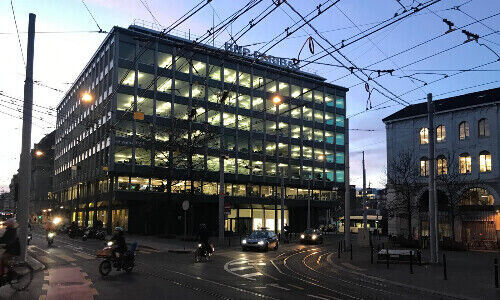Geneva Financial Center: Les Jeux Sont Faits
The exodus of prestigious financial institutions from Geneva's city center in Switzerland is symptomatic of the profound changes in the banking sector. However, some people are hopeful that these epochal changes will bring new advantages.
Switzerland has always been a magnet for the ultra-rich. And for many bankers, a business trip to Geneva was like an excursion to «Little Paris». The atmosphere in the city was always special: more relaxed, and grandiose, with a touch of nobility and lavish lunches accompanied by a good bottle of wine.
A stroll through the historic Quartier des Banques, with its impressive, historically significant row of houses stretching from the left bank of the Rhône between Rue de la Corraterie and Rue du Stand to Parc des Bastions, was always a walk through the golden age of Swiss private banking. Soon, this will only be a reminiscence.
Flagship Banks Lead the Way

Under construction: headquarters of Lombard Odier in Bellevue (Image: LO)
A significant exodus of renowned financial institutions is underway, moving away from the Quartier des Banques to the periphery. This paradigm shift was initiated by none other than the two flagship institutions of the Geneva financial center: Pictet and Lombard Odier. These last two truly significant private banks are building new, impressive palaces far outside the city center.
Lombard Odier is constructing a new headquarters in the municipality of Bellevue on the right bank of Lake Geneva, designed by star architects Herzog & de Meuron, creating space for 2,600 workplaces. Pictet plans to house a similar number of employees in its planned Campus de Rochmont in the municipality of Carouge, with the move scheduled for 2025. The complex, featuring restaurants, shops, and green spaces, will be dominated by a 90-meter-high tower – the tallest in the canton.
In Good Company

Under construction: tower of the Pictet de Richmont campus (Image: Pictet)
Other financial institutions have since announced their departure from the heart of the Rhône city. This coming autumn, the Swiss branch of the French banking group BNP Paribas will move from the center to the futuristic «Alto Pont-Rouge» building in the emerging Praille-Acacias-Vernets (PAV) area. They will be in good company there, as other firms like KPMG, EY, Swisscom, and Crédit Agricole Next Bank have also established offices there.
Edmond de Rothschild Moves Too
The prestigious Banque Edmond de Rothschild, which occupies half a dozen properties around Rue Hesse, will consolidate all its operations north of the Rhône in the new eco-district Étang in Vernier. This week, the bank clarified that its future headquarters, Belvédère, will bring all 800 employees under one roof.

Under construction: headquarters of Edmond de Rothschild in Vernier (Image: EdR)
There are strong indications that other financial institutions will follow this trend in Geneva, turning their backs on the cradle of Swiss wealth management.
Adapting to a New Era to Survive
The exodus is symptomatic of the changes in Swiss private banking and illustrates how this once-secretive industry is adapting to a new era to survive. Geneva is no longer the epicenter of global private wealth management.
Zurich, and especially foreign financial centers like Dubai and Singapore, are outpacing tranquil Geneva. Given this context, only financial institutions that meet the demands of modern business models and work environments have a future.
Daycare Centers and Fitness Facilities
Specifically, the exodus to the periphery of Geneva is primarily driven by cost considerations. Land prices outside the city are cheaper than in the center. Banks can consolidate their locations and save space, as less office space is needed today due to remote work and part-time employment.
The new buildings are sustainable in many ways, especially energy-efficient, which is relevant for a bank's image today. Equally important is that these companies offer their employees a modern work infrastructure – with healthy food options (think vegan), daycare centers, and fitness facilities.
Potential Losses in the City Center
Additionally, the new business zones have good transportation connections: they are accessible by public transport and car, the latter being a challenge in the notoriously congested city center. Last but not least, the tax burden in the municipalities outside Geneva is lower – bringing us back to cost considerations.
From the banks' perspective, the initial investment may be enormous, but in the long run, the move to the suburbs should pay off. This contrasts with the restaurants, shops, and galleries in downtown Geneva, which face significant revenue losses as high-earning and consumption-friendly bank employees leave. Losses that are unlikely to be compensated by other income.
Nightlife in the Deserted Banking District
However, the exodus of banks from the heart of Calvin's city is being welcomed by the left and the greens. They are toying with the idea of turning the soon-to-be «deserted» Quartier des Banques into a permanent festival area, to divert partygoers from the nearby Plaine de Plainpalais.
Given the constant problems with noise pollution, a motion by the Greens of the city of Geneva suggests using the emptying banking district for nightlife in the future. They envision a zone closed to traffic in the evenings and on weekends, equipped with benches, tables, and stages, where people can enjoy the more enjoyable sides of life away from the working population.




























